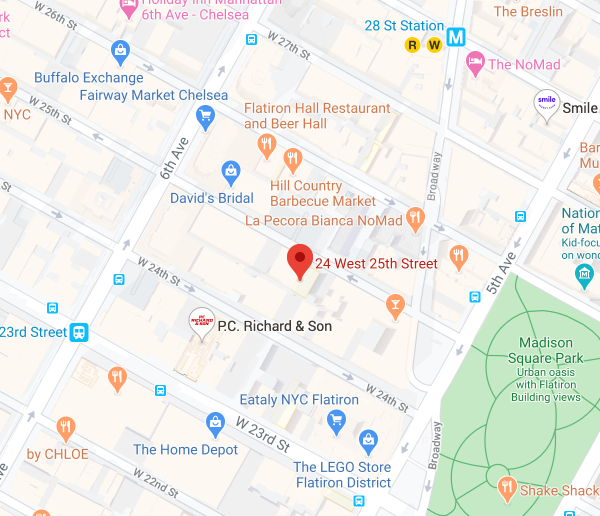HIV Counseling and Testing

An HIV test is the only way to know if you have HIV. The Commission offers FREE and CONFIDENTIAL HIV testing! You can receive your test results plus a counseling session in a matter of minutes.
Everyone is eligible for our services; no one is turned away. You don't need to have medical insurance to get an HIV test and your immigration status is NOT a barrier to access this service. Our staff is highly trained to provide anti-discriminatory, affirming and non-stigmatizing services.
Testing services are provided in-person or online.
- In-Person HIV test:
In our location, you will receive a combo test for HIV, Syphilis and Hepatitis. In one sitting, you can rule out the possibility of having any of these conditions.
- Online HIV test: We will provide you an HIV self-test kit. Then, instead of traveling to our office, you will have a video appointment using your mobile phone, computer or tablet device. Our staff will guide you through the process.
Scheduling a Test
All testing services are offered via appointments, either for in-person or online services.
You can schedule your appointment by visiting www.oasiscenter.nyc or calling (917) 438-0698.
Hours of service are from 11:00 am to 5:00 pm.
In-person services are performed in our location that is very accessible by subway and bus transportation.
24 West, 25th Street, 9th Floor
New York, NY 10010
Trains: 1, N, R, F, M, C, E, 6 to 23rd St. Station
Map

How Can HIV Testing Help You?
If the test shows that you don't have HIV, you can learn how to stay HIV-free (HIV negative). If the test shows that you do have HIV, you can get medical care right away to help you stay healthy longer and get early treatment for illnesses that may occur.
What Steps Should You Take Before Having the Test? [+]
Getting an HIV test is important, but it is a big step. You should think about how having HIV could affect your life. These following three steps can help you to prepare for the test:
1 You might consider telling someone you trust that you are getting tested for HIV. Support of a family member, friend, or loved one can mean a lot.
2 Find out how private your test results will be. Understand how your results are stored and if anyone but you can learn your test results.
3 Set a time to get your results. Don't put it off. The test can help you only when you find out what it shows.
Are you at Risk of HIV Infection? [+]
Frequently Asked Questions [+]
 How long does it take for HIV to show up in a blood test? How long does it take for HIV to show up in a blood test?
 The HIV test is an antibody test that measures the body's reaction to the HIV virus. It takes up to three months after infection for the antibody to become present. That's why we call the period after exposure before an HIV-positive test the "window period" -- when people can actually be infected but have a negative or normal antibody test. The HIV test is an antibody test that measures the body's reaction to the HIV virus. It takes up to three months after infection for the antibody to become present. That's why we call the period after exposure before an HIV-positive test the "window period" -- when people can actually be infected but have a negative or normal antibody test.
Doctors recommend a repeat test six months after the first to make sure the "window period" was truly negative. Most sexually active people at risk for HIV have interpreted this as the need to get an HIV test every six months.
 How often should I get tested if I'm sexually active? How often should I get tested if I'm sexually active?
 The current HIV test detects the presence of HIV antibody. HIV antibody is your body's response to the presence of HIV virus. In most persons it takes a few weeks to develop antibodies that are detectable by current tests. 95% of people develop antibodies within 3 months after being infected. It is recommended that people take a second testing 6 months, because 99% of those infected will develop antibodies within 6 months. A positive test is positive no matter when the test was. A negative test becomes more and more a true and accurate result the longer after the possible exposure. The current HIV test detects the presence of HIV antibody. HIV antibody is your body's response to the presence of HIV virus. In most persons it takes a few weeks to develop antibodies that are detectable by current tests. 95% of people develop antibodies within 3 months after being infected. It is recommended that people take a second testing 6 months, because 99% of those infected will develop antibodies within 6 months. A positive test is positive no matter when the test was. A negative test becomes more and more a true and accurate result the longer after the possible exposure.
 Is an oral HIV test as effective as one that draws blood? Is an oral HIV test as effective as one that draws blood?
 The oral HIV test uses the same substance -- serum -- as that used in the blood test. They are equally effective and both FDA- approved. The oral HIV test uses the same substance -- serum -- as that used in the blood test. They are equally effective and both FDA- approved.
 Do people with HIV have AIDS? Do people with HIV have AIDS?
 Having HIV does not mean you have AIDS. HIV can remain dormant in the body for several years before some unknown factors trigger the infections associated with AIDS. The median incubation period for adults can be as long as 10 years. During this period, people with HIV may look healthy and be unaware of their infection status. Having HIV does not mean you have AIDS. HIV can remain dormant in the body for several years before some unknown factors trigger the infections associated with AIDS. The median incubation period for adults can be as long as 10 years. During this period, people with HIV may look healthy and be unaware of their infection status.
 Is there a vaccination against HIV infection? Is there a vaccination against HIV infection?
 Currently there is no vaccine available for HIV/AIDS. Currently there is no vaccine available for HIV/AIDS.
 What are high risk sexual behaviors? What are high risk sexual behaviors?
 The following are high risk sexual behaviors: The following are high risk sexual behaviors:
* Anal sex without condom (active or passive).
* Oral-genital sex involving contact with semen or vaginal secretions.
* Oral-anal sex.
* Vaginal intercourse without condom.
* Blood contact of any kind including menstrual blood.
Questions?
If you have any questions about HIV testing, feel free to call our HIV Counseling and Testing Line at (917) 438-0698 or send an email to lnava@latinoaids.org
|


